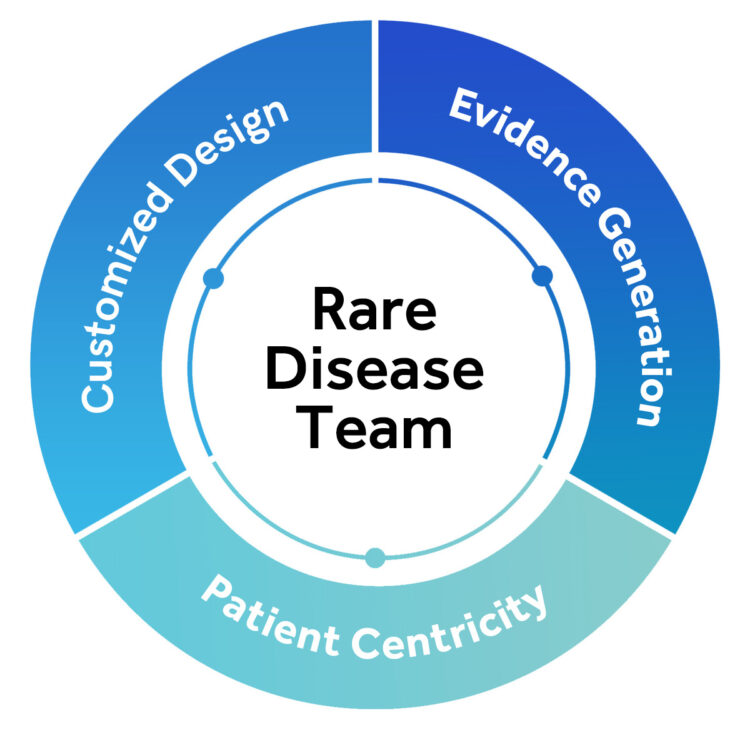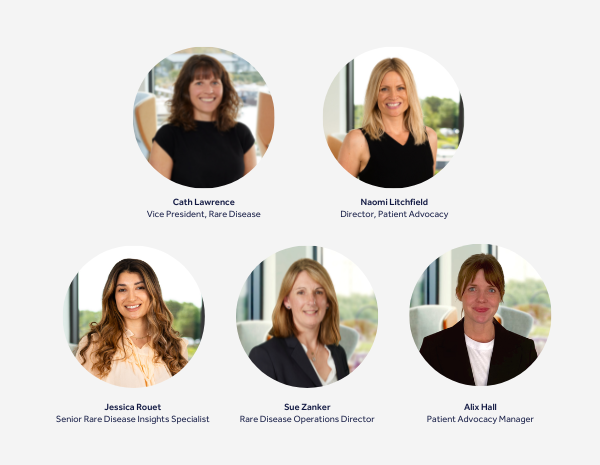Our Approach to Rare
Driving patient centricity by optimizing the patient journey to access across all rare disease programs.
Driving patient centricity by optimizing the patient journey to access across all rare disease programs.
While each rare disease affects less than one person in 2,000 by the EU’s definition, the existence of over 10,000 such conditions means that more than one in 17 may be affected overall. Rare diseases can bring huge quality of life impacts and burdens on patients and their families which need to be taken into account throughout clinical development. On average it takes 5 years for a patient to receive a diagnosis, if a diagnosis is made at all. When there is delayed diagnosis or no diagnosis the patient has no entry into the healthcare system and are often moved from practitioner to practitioner becoming an expert in their own condition. Patient-centric approaches to rare disease drug development are essential, given that patients are often the people who have the most experience with these diseases, where there is often limited knowledge on the condition itself.
In order to address this and keep the patient journey at the center of all we do at Bionical Emas, we have developed a unique approach to rare diseases. This approach consists of 3 core pillars, patient centricity, a customized design and evidence generation.

Rare disease clinical trials can present unique challenges with small patient populations spread over large geographical locations and limited sites with the relevant clinical and research expertise. These challenges can be overcome by engaging with the clinical and patient community as early as possible in the clinical development process and designing a customized operational model that will reduce patient and healthcare professional burden and maximize recruitment and retention.
Engaging with the community, mapping the patient journey and defining patient support needs to reduce patient burden is central to our approach to delivering successful rare disease clinical trials. Bionical Emas are founding members of the Decentralized Trials and Research Alliance and have an established network of specialized partners that we work with to provide customized solutions to rare disease clinical development programs.

Our unique approach to rare disease Early Access Programs (EAPs) consists of three core pillars: patient centricity, a customized design and evidence generation. The team take the time to understand the complexities of each disease area to ensure the patient journey is considered at all stages, so that the delivery of the program can be customized accordingly, keeping the patient at the center of all that we do.
Our global Patient Advocacy Team has established relationships within the patient advocacy community who we can partner with to provide guidance on the patient journey and additional resources that may be relevant. For previous EAPs, this has included creating external communication plans, lay language materials, FAQs and training resources for complex treatments.
With an appreciation that clinical data is often limited in the rare disease space, the Rare Disease Team work closely with the Real World Data Team to facilitate engagement with healthcare professionals and patient advocacy groups to obtain input on potential data points and appropriate data collection methods to minimize the potential burden.
Given the many complexities that surround drug development and access to treatments for rare diseases, there is often a need to consider bioethical questions. To address this need, Bionical Emas has built access to independent bioethical guidance into our rare disease offering.

Our dedicated Rare Disease Team consists of Global Patient Advocacy and Rare Disease Insights Specialists who drive our strong focus on patient centricity and customize clinical development programs, to ensure they are carefully designed to meet the nuances and requirements that a rare disease can present.
